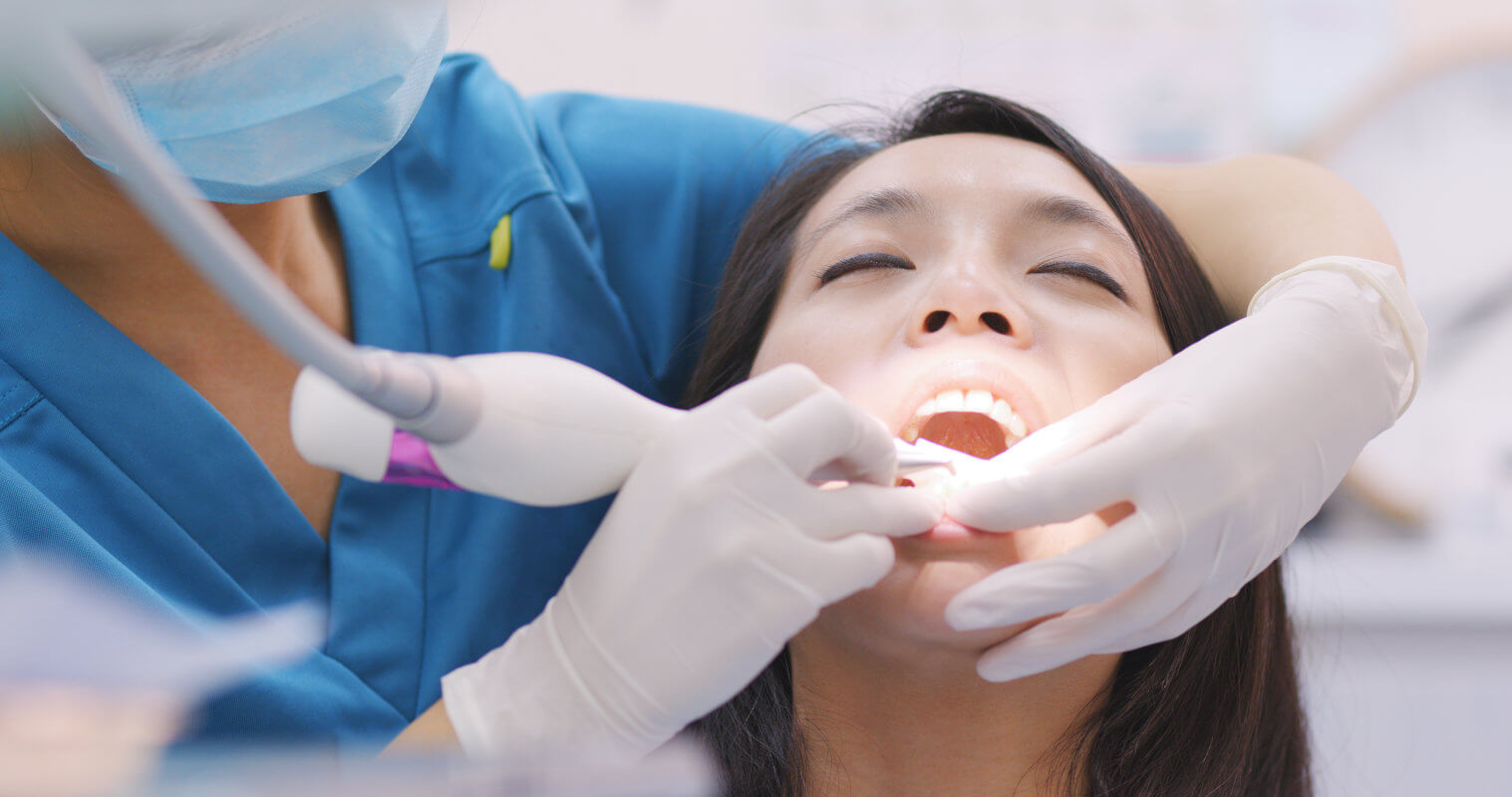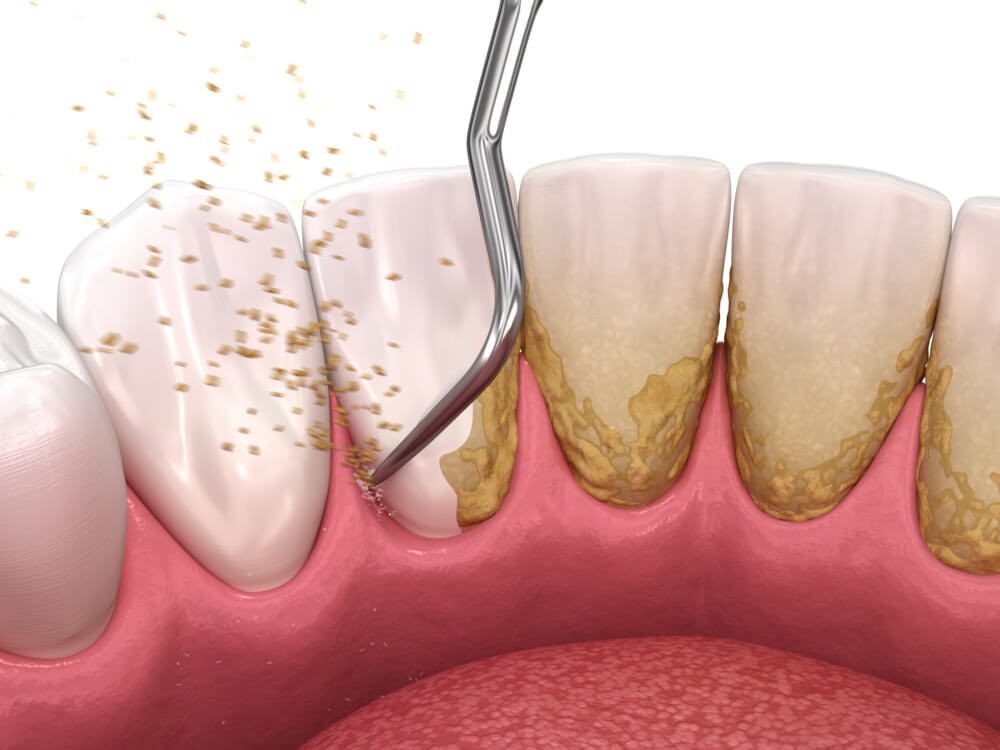
What is Scaling and Root Planing?
Scaling and Root Planing is a two-step, deep cleaning dental procedure that is used for the treatment of advanced gum disease, also known as periodontal disease or periodontitis. The treatment focuses on deep cleaning and smoothing out the surfaces around and beneath the gumline in order to promote a healthy environment for the healing and restoration of diseased gums.
Scaling and Root Planing Procedure

Dental scaling and root planing procedure may take place over one or more appointments, depending on the severity and progression of the gum disease. If taking place over more than a single appointment, your dentist may treat different portions of your mouth (possibly quadrants or halves) at each appointment to minimize discomfort.
For most cases of the procedure, a local anesthetic will be applied to minimize any pain or discomfort. This means patients will remain awake during the procedure but the area being treated will be numbed.
The scaling portion of the treatment will then take place. This involves the removal of plaque and tartar from around and below the gum line and between the gums. Scaling may be performed with manual or ultrasonic instruments or a combination of both.
Once scaling is complete, your dentist will begin the root planning process. During this phase, any plaque or tartar build up on the roots of the teeth is cleaned and the root surfaces are smoothed out to encourage gums to heal and reattach more firmly to the teeth.
While scaling and root planing is a minor procedure there may be some pain and discomfort experienced after the anesthesia wears off due to the procedure’s invasive nature. At our Aurora family dental clinic, we always practice gentle dentistry to ensure your pain and discomfort levels are kept to a minimum.
Contact our dental office today to see if you require scaling and root planing for your teeth.
FAQs About Scaling and Root Planing
How effective is scaling and root planing for gum disease?
Dental scaling and root planing is the most effective treatment currently available for advanced gum disease. When gum disease progresses past the gingivitis stage to where the tooth roots have begun to form mineral deposits and the gum starts to pull away from the teeth, this is known as periodontitis. Dental scaling and root planing clean out the mineral build-up and smooths the root surfaces to allow gums to reattach to the teeth and heal. The procedure has proven to be highly successful in the reversal of periodontal disease, though some very severe cases may require periodontal surgery.
Are there any scaling and root planing risks?
Post procedural scaling and root planing risks are minimal and only a few minor side effects can be expected. As with any invasive procedure, there is always a small risk of infection, for which your dentist may prescribe an oral antibiotic or special mouthwash. Your dentist should perform a survey of your medical history to check if you are at increased risk of infection.
Aside from the risk factors, common minor side effects from the procedure may include pain, sensitivity, tenderness, bleeding and/or irritated gums, and swelling or inflammation. These symptoms should subside within a few days and are generally mild.
If your pain worsens over time or you experience fever, contact your dentist immediately.
What does scaling and root planing aftercare look like?
As with any dental procedure, carefully follow any specific post-procedural instructions as prescribed by your dentist. This may include medications, mouth rinses, and follow-up appointments.
In order to promote healing and prevent recurrence or further progression of gum disease, practicing good standard oral hygiene is key. These include twice daily brushing, flossing, and rinsing as well as eating a balanced diet.
At your post-procedural follow-up, your dentist will examine how your gums are healing and determine if any other treatments are required, and how often teeth cleaning and/or deep cleaning should be performed moving forward.
contact us now!
Do you need scaling and root planing in Aurora CO? Contact our dental office for a consultation today!


